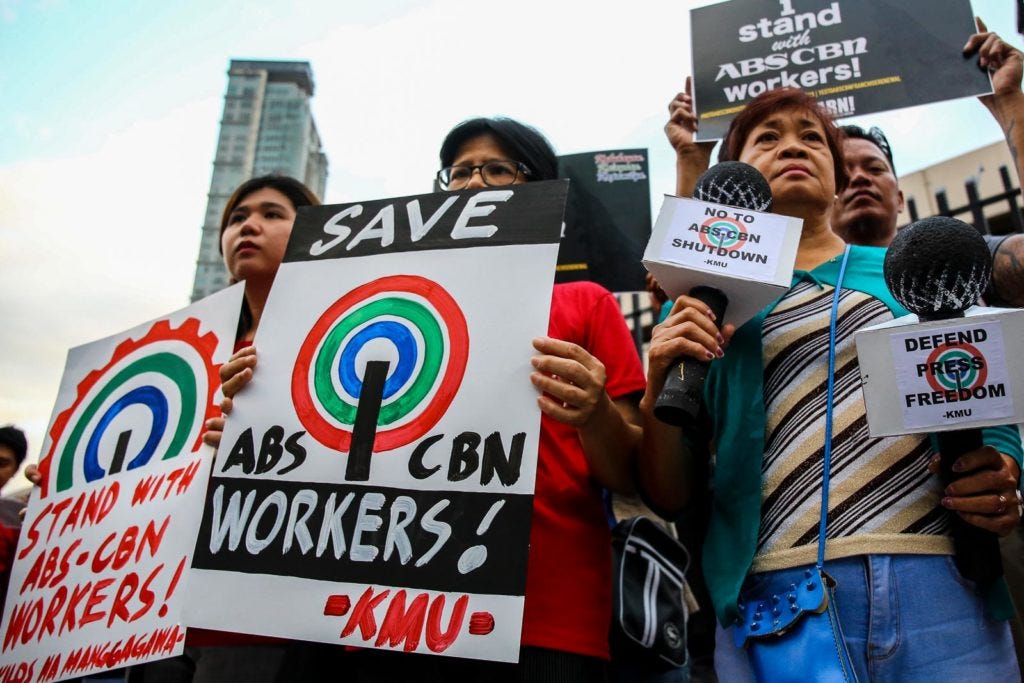Philippines’ Duterte Runs Into Opposition on Threat to End News Foe
But president expected to try to ram through ABS-CBN removal anyway

Philippine President Rodrigo Duterte is running into uncharacteristically heavy weather in his campaign to shut down the country’s biggest broadcast network, with the Congress showing unexpected opposition, rights groups and journalism organizations protesting and hundreds of thousands of people submitting signatures against the move.
On February 18, Sol…
Keep reading with a 7-day free trial
Subscribe to Asia Sentinel to keep reading this post and get 7 days of free access to the full post archives.
